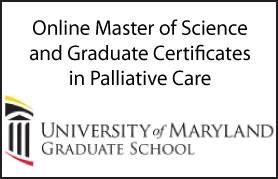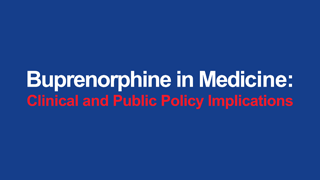Urine drug test interpretation: What do physicians know?
DOI:
https://doi.org/10.5055/jom.2007.0044Keywords:
urine drug test, chronic opioid therapy, interpretation, physician knowledgeAbstract
Objective: To determine the level of urine drug test (UDT) interpretive knowledge of physicians who use these instruments to monitor adherence in their patients on chronic opioid therapy.
Methods: A seven-question instrument consisting of six five-option, single-best-answer multiple choice ques¬tions and one yes/no question was completed by 114 physicians (77 who employ UDT and 37 who do not) attending one of three regional opioid education confer¬ences. We calculated frequencies and performed %2 analyses to examine bivariate associations between UDT utilization and interpretive knowledge.
Results: The instrument was completed by 80percent of eligible respondents. None of the physicians who employ UDT answered all seven questions correctly, and only 30 percent answered more than half correctly. Physicians who employ UDTperformed no better on any of the ques¬tions than physicians who do not employ UDT.
Conclusions: Physicians who employ UDT to monitor patients receiving chronic opioid therapy are not profi¬cient in test interpretation. This study highlights the need for improved physician education; it is imperative for physicians to work closely with certified laboratoryprofes- sionals when ordering and interpreting these tests.
References
Dasgupta N, Kramer ED, Zalman MA: Association between non-medical and prescriptive usage of opioids. Drug Alcohol Depend. 2006; 82(2): 135-142.
Gilson AM, Ryan KM, Joranson DE, et al.: A reassessment of trends in the medical use and abuse of opioid analgesics and implications for diversion control: 1997-2002. JPain Symptom Manage. 2004; 28(2): 176-188.
Chelminksi PR, Ives TJ, Felix KM, et al.: A primary care, multi-disciplinary disease management program for opioid-treated patients with chronic non-cancer pain and a high burden of psychiatric comorbidity. BMC Health Serv Res. 2005; 5(1): 3.
Rounsaville BJ, Petry NM, Carroll KM: Single versus multiple drug focus in substance abuse clinical trials research. Drug Alcohol Depend. 2003; 70(2): 117-125.
Miller NS, Greenfield A: Patient characteristics and risk factors for development of dependence on hydrocodone and oxy¬codone. Am J Ther. 2004; 11(1): 26-32.
Levy S, Harris SK, Sherritt L, et al.: Drug testing of adolescents in ambulatory medicine: Physician practices and knowledge. Arch Pediatr Adolesc Med. 2006; 160(2): 146-150.
Heit HA, Gourlay DL: Urine drug testing in pain medicine. J Pain Symptom Manage. 2004; 27(3): 260-267.
Lee HK, Lewis LD, Tsongalis GJ, et al.: Negative urine opioid screening caused by rifampin-mediated induction of oxy¬codone hepatic metabolism. Clin Chim Acta. 2006; 367(1-2): 196-200.
Goldstein A, Brown BW: Urine testing in methadone mainte¬nance treatment: Applications and limitations. J Subst Abuse Treat. 2003; 25(2): 61-63.
Durback LF, Scharman EJ, Brown BS: Emergency physi¬cians’ perceptions of drug screens at their own hospitals. Vet Hum Toxicol. 1998; 40(4): 234-237.
Downing SM: The effects of violating standard item writing principles on tests and students: The consequences of using flawed test items on achievement examinations in medical education. Adv Health Sci Educ Theory Pract. 2005; 10(2): 133¬143.
Upshur CC, Luckmann RS, Savageau JA: Primary care provider concerns about management of chronic pain in com¬munity clinic populations. J Gen Intern Med. 2006; 21(6): 652¬655.
Ponte CD, Johnson-Tribino J: Attitudes and knowledge about pain: An assessment of West Virginia family physicians. Fam Med. 2005; 37(7): 477-480.
Gourlay D, Heit HA, Caplan YH: Urine Drug Testing in Primary Care: Dispelling the Myths and Designing Strategies. San Francisco: California Academy of Family Physicians, PharmaCom Group, 2002.
Swotinsky R, Smith D: The Medical Review Officer’s Manual, 3rd ed. Beverly Farms, MA: OEM Press, 2006.
Downloads
Published
How to Cite
Issue
Section
License
Copyright 2005-2024, Weston Medical Publishing, LLC
All Rights Reserved












